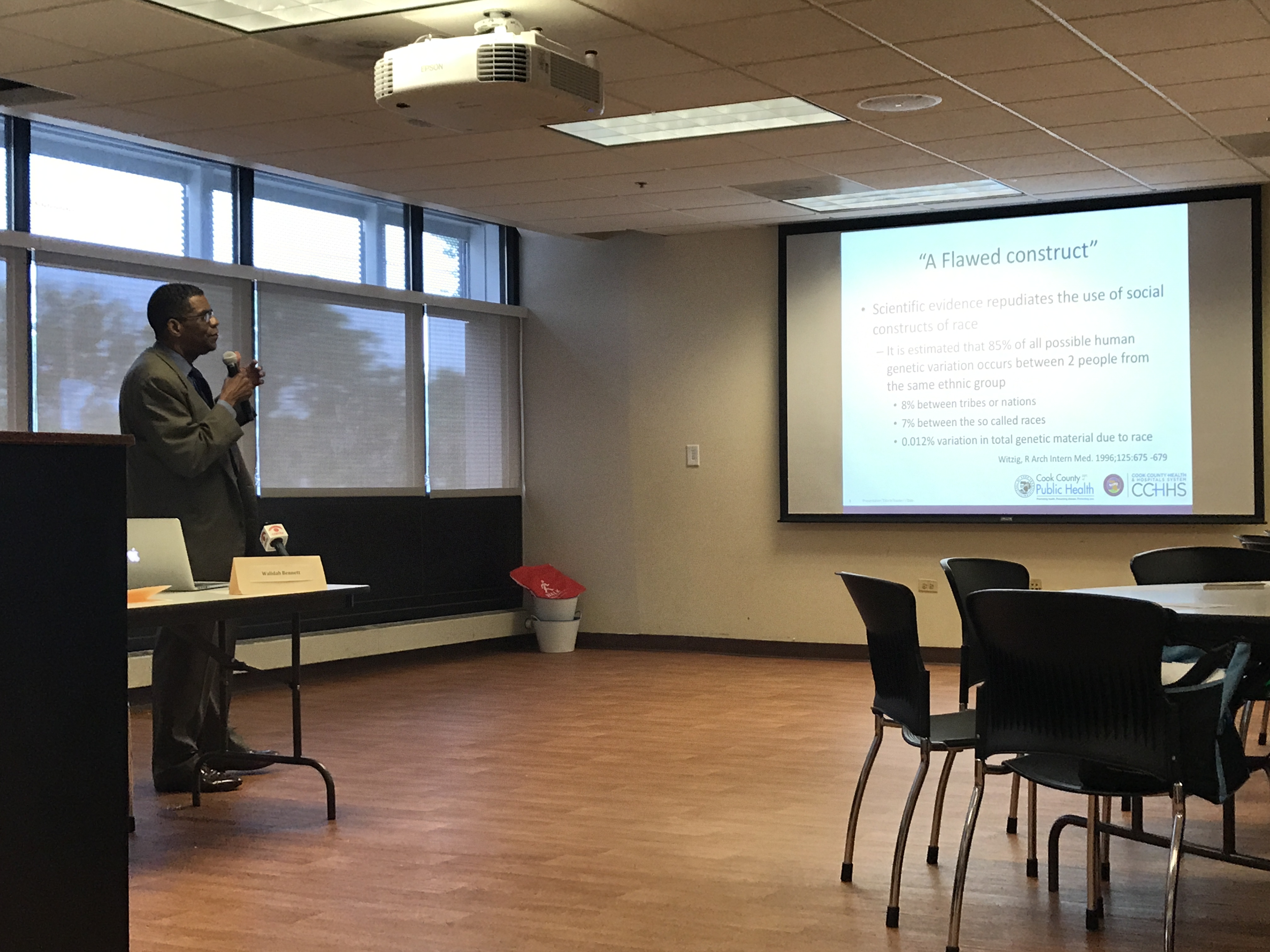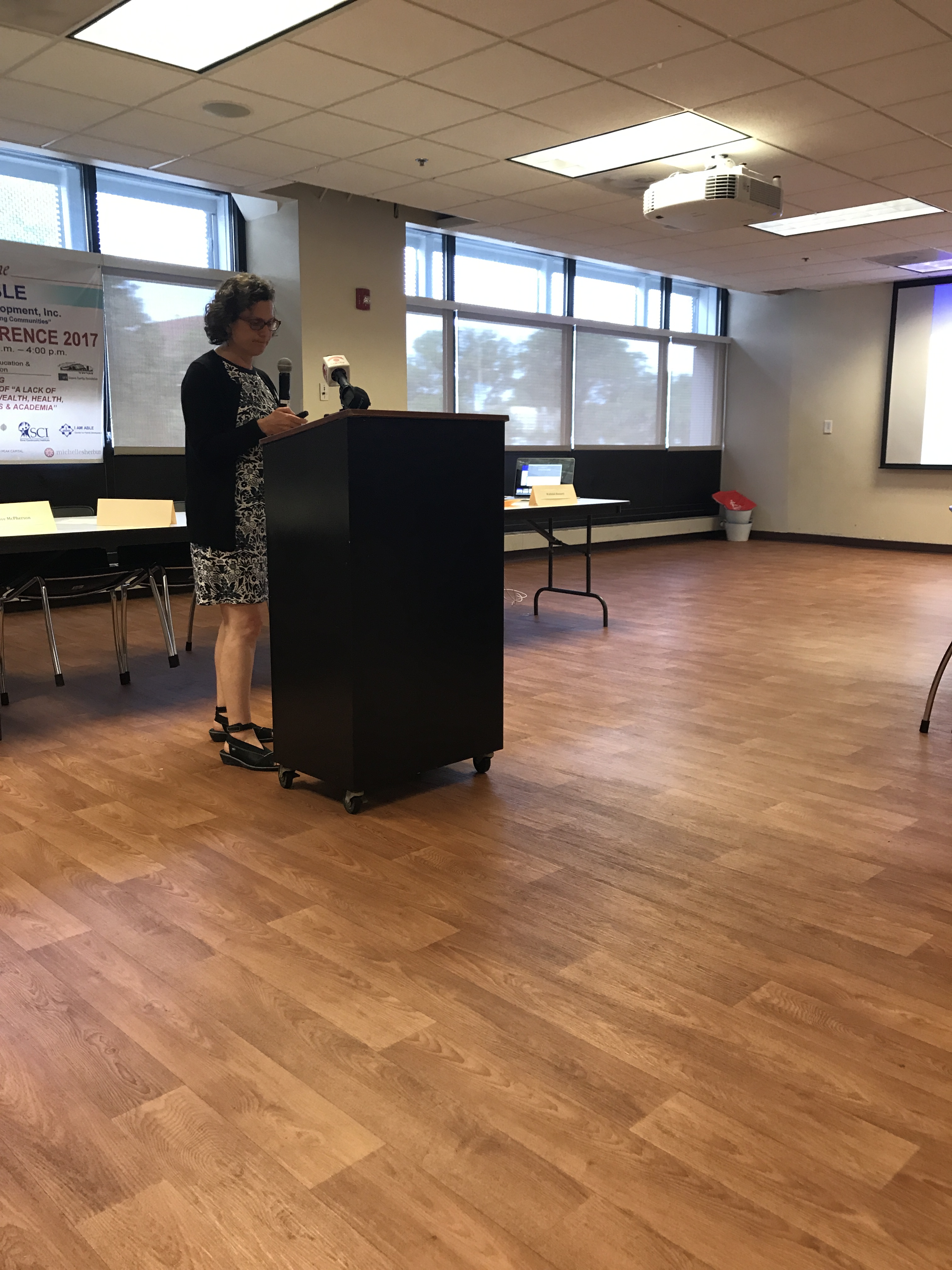The Trauma Response and Intervention Movement (TR4IM) hosted its Bi-annual Trauma and Violence Prevention Conference at the Sinai Community Institute in Chicago July 27-28. The event was titled “The Trauma of Miseducation and Missed Education in Wealth, Health, Relationships, Politics, and Academia.”
TR4IM is a program of I AM ABLE Center for Family Development, Inc. that is made up of networks of North Lawndale residents and collaborative partners who are committed to the positive impact of the different sectors of the North Lawndale community. They help families respond to, recover from, reduce, and remove childhood trauma, and community and family violence. The conference was designed to share information needed to create an action plan to “dismantle the crippling effects of a lack of knowledge.”
Many speakers lent their voices and expertise to the subject matter of the conference, including keynote speakers Dr. Terry Mason, COO, CCDPH, 24th Ward Alderman Michael Scott, Dr. Audrey Stillerman, UIC, Malcolm London, Ted Talks, Dr. Amara Enyia JD, PhD, Public Policy Consultant, Public Policy Director, and Xavier Ramey, USCS Senior Assistant Director for Social Innovation and Philanthropy, Office of Civic Engagement, University of Chicago. All of the speakers’ sessions were moderated by the I AM ABLE CEO/President Dr. Carolyn L. Vessel.

Opening speaker Dr. Terry Mason posed the question to the audience, which was made up mostly of minority adults, “Health Equity, Is It Possible?” In his presentation, he explored and examined the history of race and its past and present implications. “We can’t have a discussion about equity without discussing race,” he says. He discussed the global system that is White supremacy, explained how race is a social construct and how society has racialized biology and cultural practices, and that’s wrong. Through his explanations, along with video clips and film recommendations, his talk culminated into the need for people of color, Black people especially, to create and invest in ourselves. “We have to stop making excuses and we have to start working,” he declared. He expressed that Black people can no longer pander to Whites in hope of equal entry into their system. Instead we must construct our own structures for the benefit and betterment of ourselves.

Next, speaker Dr. Audrey Stillerman spoke about the effect of her findings on certain traumas in childhood to adulthood, stemming from Dr. Vincent Felitti’s research into the link between sexual and obesity in adulthood, as well as other health problems. Her presentation was science-based and hands-on, as she had the audience participate in an Adverse Childhood Experiences (ACE) test and resiliency test. The former tallies various kinds of “abuse, neglect, and other hallmarks of a rough childhood.” Naturally, the higher the score, the higher the risk for health issues later in life. The latter test was an assessment of how well a person is able to bounce back from the curveballs of life. As resiliency is a necessary part of surviving life, the test shows a person what areas they may need to improve their adaptability. She discussed the development of the brain and how trauma affects it and how people can climb higher up the Maslow’s hierarchy of needs, essentially teaching the audience “how we build resilience, feeling, and hope.”
The community members in the audience considered this event a very important and essential one. Maria Pike, mother, survivor, and activist, is a Chicago resident who would like to see many changes in the city, starting with the education and protection of the children. “Students need to be taught civics and ethics in school,” she states. “There are children with PTSD (post-traumatic stress disorder); school should be a second parent.” She also stressed the importance of Chicago returning to a community mindset. “We need to get back to the concept of the village. When there’s children raising children, there’s a lack of culture.”

Following the keynote speaker, a panel facilitated by Dominica McBride was held for the introductions of those aiding in specific workshops. The panelists included Bernard Scott, Rev. Dr. Walter A. McCray, Eric K. Williams, Love McPherson, Xavier Ramey, Eli Williamson, Stanley Williams, Joanne Adjei, Laura S. Ng, Walidah Bennett, and Jaleel K. Abdul-Adil, Ph.D. The panels headed the following workshops, which were divided into Health (Walidah Bennett), Wealth (Stanley Williams; Eric K. Williams), Politics (Jaleel Abdul-Adil Ph.D.), Relationships (Laura Ng; Love McPherson), and Youth (Xavier Ramey, Dr. Walter McCray, Joanne Adjei). Participants were able to choose their own workshops before the conference began. With a presentation by the Example Setters, a youth spoken word and poetry team, and the aforementioned seminars, the conference was a great educational tool and experience.

